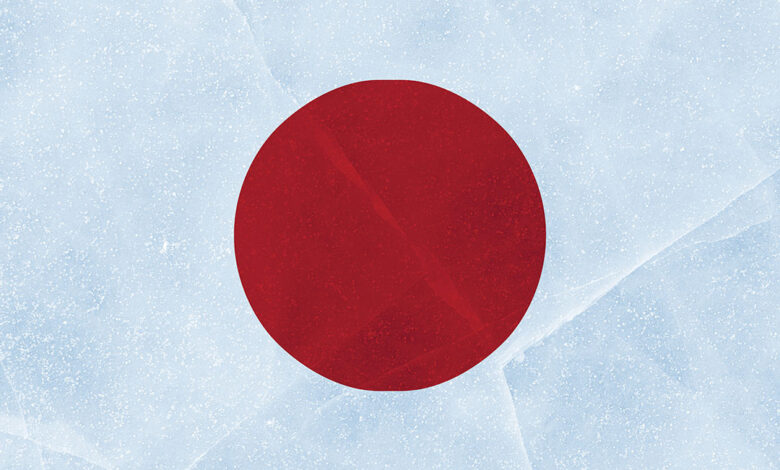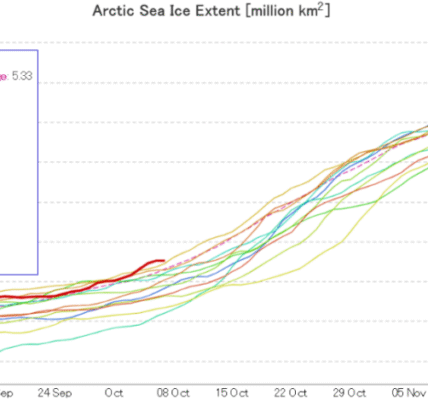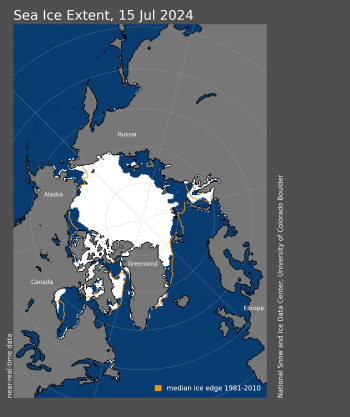The Arctic is warming at an alarming rate, about three times faster than the global average. This rapid temperature increase has led to significant environmental changes, including retreating sea ice, thawing permafrost and increased coastal erosion. These changes have far-reaching implications not only for the Arctic but also for the planet.
Understanding and addressing these impacts are crucial for achieving global climate stability. Japan is not an Arctic state but is affected by rising temperatures in the Arctic through oceanic and atmospheric circulation. In terms of political geography, Japan is closest to the Arctic Ocean in East Asia and enjoys many opportunities in the economic and commercial sectors, such as utilization of the Arctic Sea routes. Several major turning points in Japan’s involvement in Arctic affairs outline the trajectory of Japan’s engagement with the region.
The first was a Hokkaido University professor’s research expedition to Greenland in 1957. Throughout the 1990s, Japan also furthered its Arctic research capacity following the creation of the Arctic Environment Research Center at the National Institute of Polar Research. In 1991, Japan became the first non-Arctic state to establish an observation station in Ny-Ålesund in Norway’s Svalbard archipelago. Japan was present at the signing of the Arctic Council’s Ottawa Declaration in 1996. Between 1993 and 1999, the International Northern Sea Route Programme, primarily a joint Japanese-Norwegian-Russian venture, mapped out potential shipping opportunities through Russia’s Northern Sea Route.
In 2010, the Ocean Policy Research Foundation, since reorganized into the Ocean Policy Research Institute, established the Arctic Conference Japan, which engages experts in fields such as international law, security, scientific research and shipbuilding. Having submitted its application as an Arctic Council observer in 2009, Japan’s engagement in Arctic affairs increased in 2013 when it was granted observer status at the Kiruna Ministerial Meeting with China, India, Italy, Singapore and South Korea. This enabled Japan to participate more actively in Arctic discussions and collaborations, laying the groundwork for a more structured Arctic policy.

Comprehensive Commitment
In 2015, Japan’s Arctic Policy was formally adopted by the Headquarters for Ocean Policy, and it became the cornerstone of Japan’s Arctic involvement. The policy is a comprehensive statement of Japan’s fundamental outlook toward the Arctic, with a strong emphasis on international cooperation. In particular, it outlines three key interests: research and development, international cooperation, and sustainable use. Japan’s policy promotes the rule of law and international cooperation in a peaceful and orderly manner.
In 2018, Japan’s Headquarters for Ocean Policy approved the Third Basic Plan on Ocean Policy and made a key decision to explicitly include the Arctic Policy in the plan. Moreover, as one of the main measures of the Third Basic Plan, the policy became legally binding.
This highlights the increasing importance of the Arctic in Japan’s ocean policy. In the plan, the promotion of Arctic policy was positioned as a key measure to be advanced. This strategic focus was reinforced in subsequent plans, which emphasize continued advancement of the three core pillars.
Japan’s position on Arctic issues is grounded in the principles of international law, emphasizing “ensuring the rule of law and promoting international cooperation” in its policy. The Arctic Ocean is governed by international law, including the United Nations Convention on the Law of the Sea. Respecting freedom of navigation and other principles enshrined in international law is imperative. Science and science diplomacy always have been priorities for Japan.
Promoting Cooperation
During negotiations on the 2017 Agreement on Scientific Cooperation under the auspices of the Arctic Council, Japan contributed as a key observer state. Japan has been involved in Arctic research through projects and collaborations. For example, the Arctic Challenge for Sustainability (ArCS) launched in 2015 aims to enhance Japan’s Arctic research capabilities and promote international cooperation. The project illuminates changes in the environment and clarifies their effects on human society.
The ArCS project also provides accurate projections and environmental assessments to internal and external stakeholders, enabling them to make appropriate decisions regarding sustainable development in the Arctic. Japan also is investing in advanced observation technologies, such as satellite remote sensing and autonomous underwater vehicles, to monitor and study the Arctic environment. These technologies provide critical data to support evidence-based policymaking.
The Russia-Ukraine war that began in February 2022 had significant repercussions for Arctic cooperation. The Arctic states, excluding Russia, issued a joint statement condemning Moscow and suspended their participation in all Arctic Council meetings. That halted cooperation and dialogue in all Arctic areas, including scientific research. While the Arctic Council’s working and expert groups have resumed their activities to a limited degree, prospects remain uncertain.
In April 2023, Japan’s Cabinet approved the Fourth Basic Plan on Ocean Policy, which continues to position Arctic policy as a “key measure to be steadily promoted.” The plan also addresses the effect of the Russia-Ukraine war and the uncertainty it has created about the Arctic’s future. However, Japan remains committed to advancing the three pillars of its Arctic Policy: research and development, international cooperation, and sustainable use. Tokyo will continue to exchange information with relevant countries and prepare for all possible scenarios.
Enduring Policy
Japan has dispatched experts and government officials to Arctic Council working groups and task forces since their resumption in 2024, thereby enhancing its contributions to Arctic science. Despite the complications and tensions currently surrounding Arctic cooperation, Japan is committed to remaining an active and increasingly prominent advocate for scientific endeavor, multinational collaboration and sustainability in Arctic affairs.
This commitment is encapsulated in the Fourth Basic Plan. In accordance with the plan, Japan will “always consider the optimal combination of bilateral and multilateral approaches, further promote exchanges of views with Arctic and other relevant countries, maximize the use of international frameworks related to the Arctic, strengthen the dissemination of our country’s perspectives and achievements in observation and research, and enhance our presence.”
This article published August 15, 2024, in the East-West Center’s Asia Pacific Bulletin. It has been edited to fit FORUM’s format.




